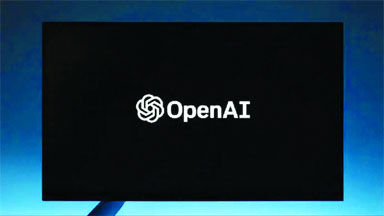
OpenAI is reportedly planning to launch another flagship AI model, codenamed Orion. After launching OpenAI o1, the company is eyeing bringing the new model in December. The Verge report states that Orion won’t be widely available via ChatGPT at first. OpenAI plans to offer early access to select partner companies, allowing them to develop their own products and features using the platform. This limited rollout will prioritise those businesses with which OpenAI has established close working relationships before broader release.
OpenAI’s Orion model is not new, the company has been teasing its still-under-progress model for quite some time. According to the previous reports, the upcoming model is expected to be a significant advancement in artificial intelligence, potentially succeeding GPT-4. Orion builds upon the progress made by previous models, with a focus on enhancing reasoning, problem-solving, and language processing. It aims to reduce common AI issues like hallucinations by leveraging improved synthetic data generation, as described earlier. It was also reported that OpenAI was using o1, code named Strawberry, to provide synthetic data to train Orion.
According to The Verge, Microsoft engineers, OpenAI’s primary partner for AI model deployment, are gearing up to host Orion on Azure as soon as November. Orion, viewed internally as GPT-4’s successor, may not be labelled GPT-5 externally. However, OpenAI has not finalised the name so far. The release timing could shift as it remains tentative, with no guarantees on when it will officially launch, as per the report.
While there is very limited information available around the Orion AI model, ChatGPT has something to say. We asked ChatGPT about the upcoming model, and it said, “This model aims to push boundaries in key sectors, including healthcare and finance, where accuracy and reliability are crucial. Orion’s development reflects OpenAI’s strategy to stay competitive in the rapidly evolving AI space, as it faces challenges from rivals like Google DeepMind and Meta’s LLaMA models.”
Last month, OpenAI fully unveiled the new AI model that thinks before responding — OpenAI o1, from which the upcoming model will learn and grow. OpenAI o1 is itself a progressive step toward achieving human-like AI. It also demonstrates tangible improvements in key areas, such as generating code and tackling complex, multistep challenges with greater proficiency than its predecessors.





Be the first to comment